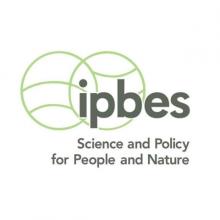Resource information
The objective of the Intergovernmental Science Policy Platform on Biodiversity and Ecosystem Services is to provide Governments, the private sector, and civil society with scientifically credible and independent up-to-date assessments of available knowledge to make informed decisions at the local, regional and international levels.
This regional and subregional assessment of biodiversity and ecosystem services for Asia and the Pacific has been carried out by 120 experts, including 7 early career fellows, assisted by 54 contributing authors, primarily from this region, who have analyzed a large body of knowledge, including about 3,200 scientific publications. The Report represents the state of knowledge on the Asia and Pacific region and subregions. Its chapters and their executive summaries were accepted, and its summary for policymakers was approved, by the Member States of IPBES at the sixth session of the IPBES Plenary (18 to 24 March 2018, Medellín, Colombia).
This Report provides a critical assessment of the full range of issues facing decision-makers, including the importance, status, trends and threats to biodiversity and nature’s contributions to people, as well as policy and management response options. Establishing the underlying causes of the loss of biodiversity and of nature’s contributions to people provides policymakers with the information needed to develop appropriate response options, technologies, policies, financial incentives and behavior changes.The Assessment concludes that the region’s rich biodiversity and valuable ecosystems services provide vital support for human well-being and long-term sustainable development. While the region has enjoyed rapid economic growth, rapid urbanization and agricultural expansion, this has come at the expense of biodiversity. Socioeconomic and demographic changes are the major indirect drivers of the loss of biodiversity and of nature’s contributions to people, resulting in conversion and degradation of habitats, an increasing number of invasive alien species and pollution.



